There’s a technology lover in nearly every family and they can be a tad tricky to buy for. Fear not, we’re here to help! Have a look through our recommended section for some great ideas that you can pop under the tree for them.
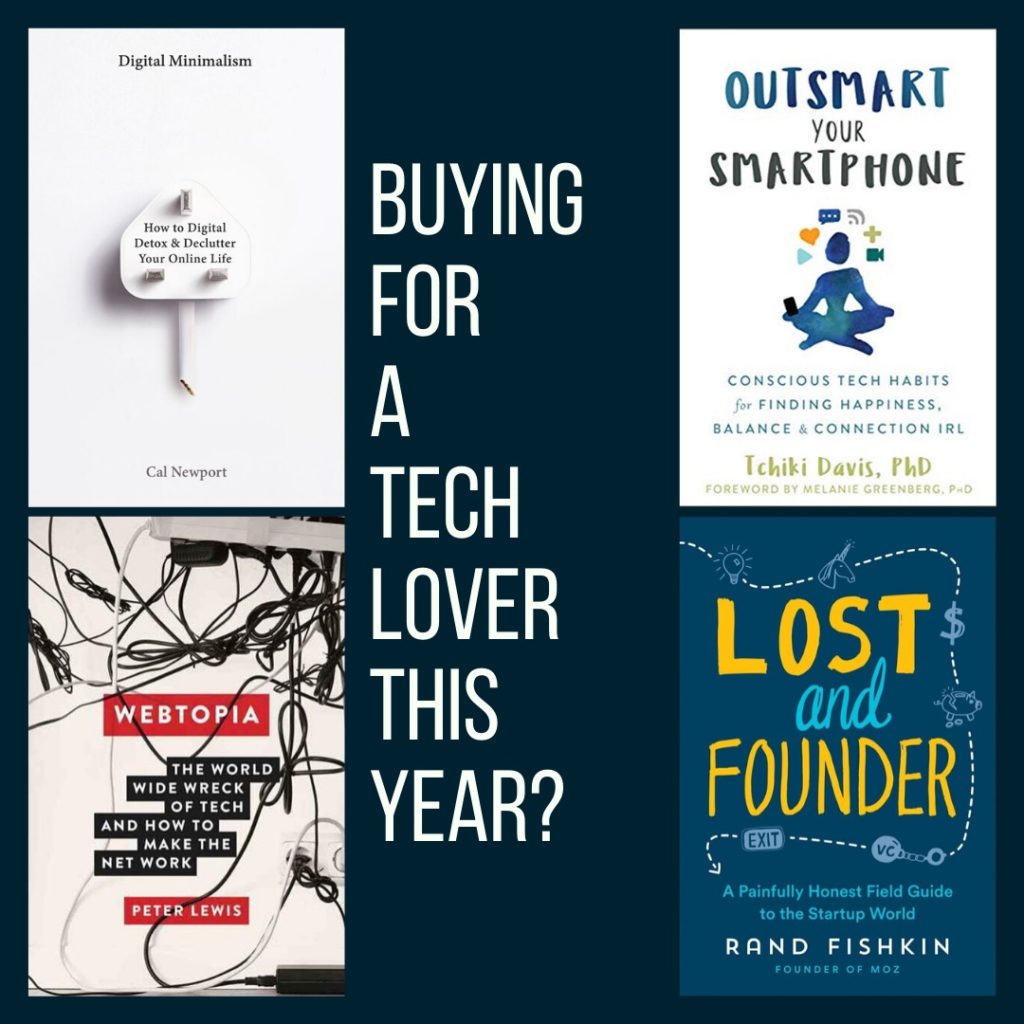
There’s a technology lover in nearly every family and they can be a tad tricky to buy for. Fear not, we’re here to help! Have a look through our recommended section for some great ideas that you can pop under the tree for them.

It’s a tough call as there are so many great books out there, but we really liked Where the Crawdads Sing, Educated and The Testaments…what about you? What is your #1 book of the year?
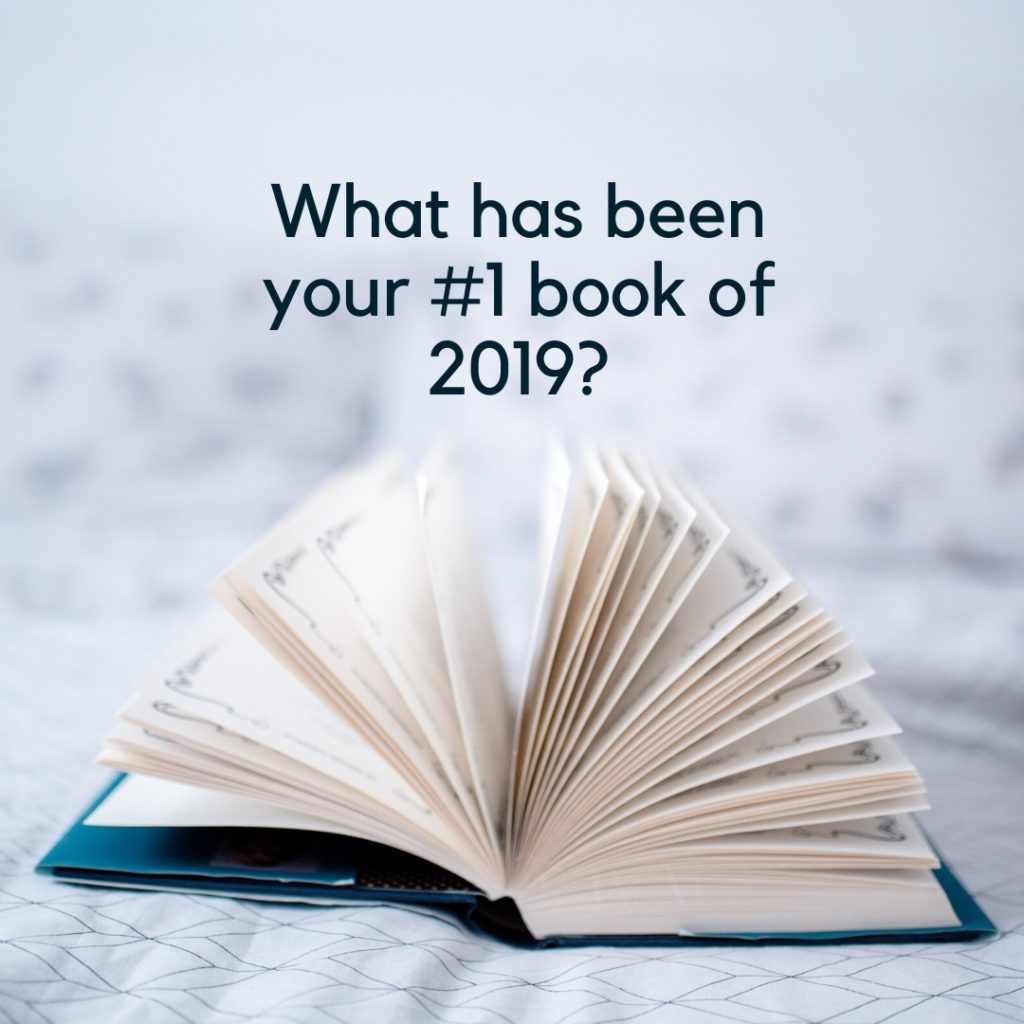
Looking for ideas other than candles, chocolates or mugs for teachers? We’ve pulled together our fav books into our recommended section for you to pick from.
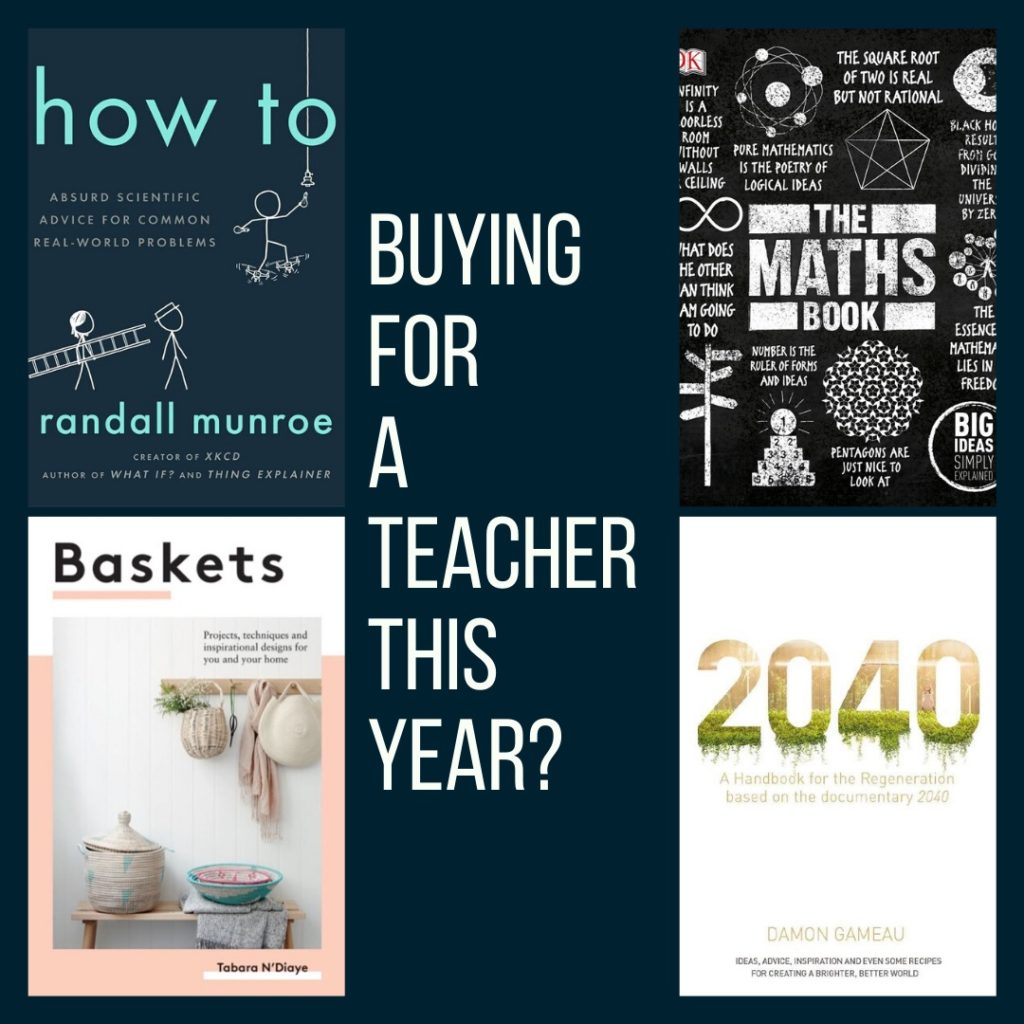
Stuck for ideas for a curious child this Christmas? Make sure you shop our ‘recommended’ section where we have handily popped all of the best books to make your Christmas shopping that little bit easier. Ho Ho Ho.
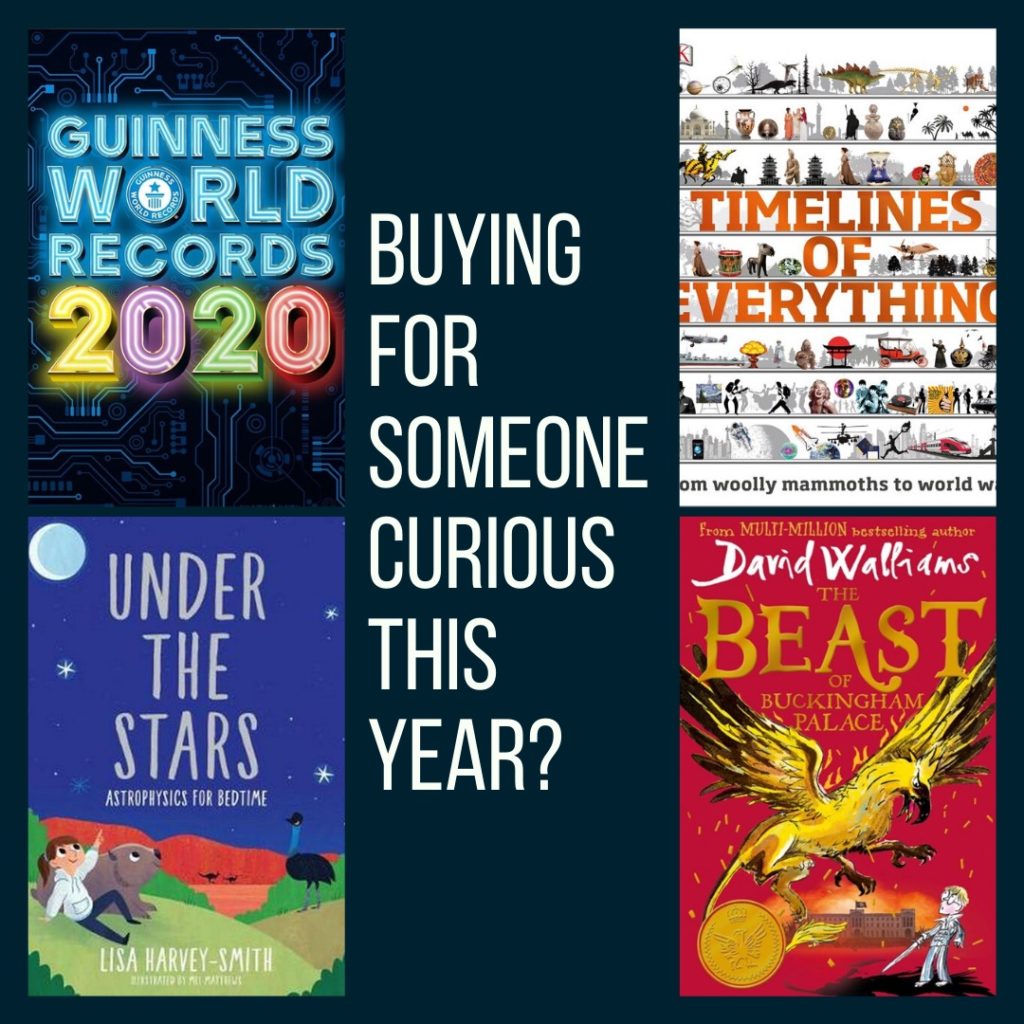
With Summer so close, now is the time to start gathering titles to read whilst holidaying in the sunshine. Which book is at the top of your ‘to read’ list?

There have been some amazing titles released this year. Which book has been your favourite?
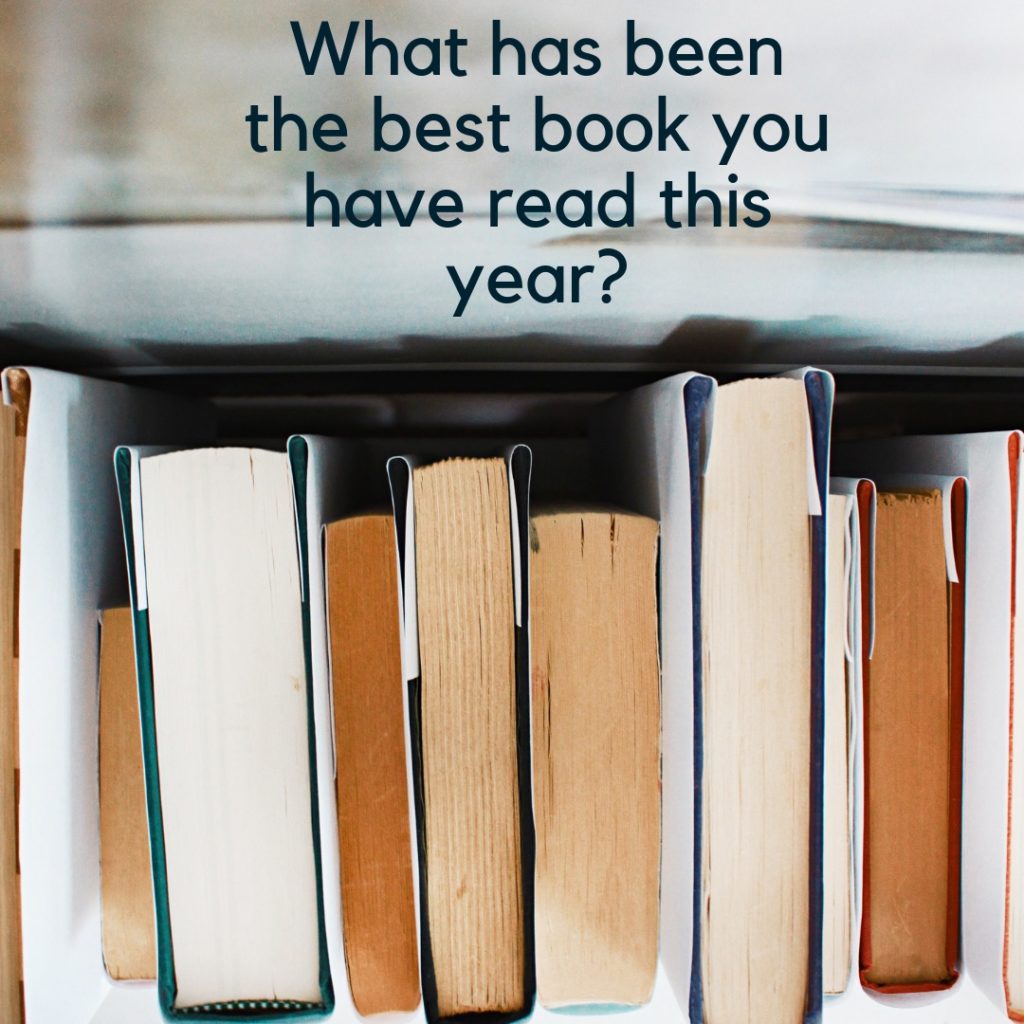
With so many amazing new books being released it can be daunting choosing one to buy Dad for Father’s Day. But fear not, we have had a poke around the literary world and have rounded up the hottest titles to buy Dad this September. So get your bookmark button ready and prepare to shop for Dad.
The Nickel Boys by Colson Whitehead
Elwood Curtis has taken the words of Dr Martin Luther King to heart: he is as good as anyone. Abandoned by his parents, brought up by his loving, strict and clearsighted grandmother, Elwood is about to enrol in the local black college. But given the time and the place, one innocent mistake is enough to destroy his future, and so Elwood arrives at The Nickel Academy, which claims to provide ‘physical, intellectual and moral training’ which will equip its inmates to become ‘honorable and honest men’. In reality, the Nickel Academy is a chamber of horrors, where physical, emotional and sexual abuse is rife, where corrupt officials and tradesmen do a brisk trade in supplies intended for the school, and where any boy who resists is likely to disappear ‘out back’. Stunned to find himself in this vicious environment, Elwood tries to hold on to Dr King’s ringing assertion, ‘Throw us in jail, and we will still love you.’ But Elwood’s fellow inmate and new friend Turner thinks Elwood is naive and worse; the world is crooked, and the only way to survive is to emulate the cruelty and cynicism of their oppressors. The tension between Elwood’s idealism and Turner’s skepticism leads to a decision which will have decades-long repercussions. Based on the history of a real reform school in Florida that operated for one hundred and eleven years and warped and destroyed the lives of thousands of children, The Nickel Boys is a devastating, driven narrative by a great American novelist whose work is essential to understanding the current reality of the United States.
Brabham by Tony Davis
This is the story of Australia’s greatest motoring hero, and the dynasty he founded. Sir Jack Brabham was unique in the world of motor racing. He was the boy from Sydney who took on the elite of motor racing and won – not only three major F1 championships but the last one in a car he had built in his home country to his own specifications. To those who saw him on the podium, Jack Brabham might have seemed glorious and triumphant, but his story is full of pain, risk, snubs, endurance, wins, and losses. And only now is he gaining the recognition he deserves as someone who revolutionised Formula One. In 2017 he was inducted into the F1 Hall of Fame. Racing with greats including Stirling Moss, Jackie Stewart and Bernie Ecclestone, he not only revolutionised Formula One he also encouraged others, such as Bruce McLaren. But he remained an outsider – a colonial. Now his sons want to revive the Brabham name and the Brabham brand. With interviews from those who raced with and against ‘Black Jack’, those who built cars with him, those who loved him, and those who crossed him, this is a brilliant and vivid portrait of a motor genius and the racing dynasty he founded.
Dark Emu by Bruce Pascoe
Dark Emu puts forward an argument for a reconsideration of the hunter-gatherer tag for pre-colonial Aboriginal Australians. The evidence insists that Aboriginal people right across the continent were using domesticated plants, sowing, harvesting, irrigating, and storing; behaviours inconsistent with the hunter-gatherer tag. Gerritsen and Gammage in their latest books support this premise but Pascoe takes this further and challenges the hunter-gatherer tag as a convenient lie. Almost all the evidence in Dark Emu comes from the records and diaries of the Australian explorers, impeccable sources. Dark Emu is a must read for anyone who wants to understand what Australia once was, or what it might yet be if we heed the lessons of long and sophisticated human occupation.
Bowraville by Dan Box
A true crime story cannot often be believed, at least at the beginning. In Bowraville, all three of the victims were Aboriginal. All three were killed within five months, between 1990 and 1991. The same white man was linked to each, but nobody was convicted. More than two decades later, homicide detective Gary Jubelin contacted Dan Box, asking him to pursue this serial killing. At that time, few others in the justice system seemed to know, or care, about the murders in Bowraville. Dan spoke to the families of the victims, Colleen Walker-Craig, Evelyn Greenup and Clinton Speedy-Duroux, as well as the lawyers, police officers and even the suspect involved in what had happened. His investigation, as well as the families’ own determined campaigning, forced the authorities to reconsider the killings. This account asks painful questions about what ‘justice’ means and how it is delivered, as well as describing Dan’s own shifting, uncomfortable realisation that he was a reporter who crossed the line.
Good Girl Bad Girl by Michael Robotham
Six years ago, Evie Cormac was discovered, filthy and half-starved, hiding in a secret room in the aftermath of a shocking crime. Now approaching adulthood, Evie is damaged, self-destructive and has never revealed her true identity. Forensic psychologist Cyrus Haven, a man haunted by his own past, is investigating the death of champion figure-skater Jodie Sheehan. When Cyrus is called upon to assess Evie, she threatens to disrupt the case and destroy his ordered life. Because Evie has a unique and dangerous gift – she knows when someone is lying. And nobody is telling the truth. Good Girl Bad Girl is an unnerving psychological thriller from one of the greatest crime writers of today, Michael Robotham, bestselling author of The Other Wife and The Secret She Keeps.
The Yield by Tara June Winch
The yield in English is the reaping, the things that man can take from the land. In the language of the Wiradjuri yield is the things you give to, the movement, the space between things- baayanha. Knowing that he will soon die, Albert ‘Poppy’ Gondiwindi takes pen to paper. His life has been spent on the banks of the Murrumby River at Prosperous House, on Massacre Plains. Albert is determined to pass on the language of his people and everything that was ever remembered. He finds the words on the wind. August Gondiwindi has been living on the other side of the world for ten years when she learns of her grandfather’s death. She returns home for his burial, wracked with grief and burdened with all she tried to leave behind. Her homecoming is bittersweet as she confronts the love of her kin and news that Prosperous is to be repossessed by a mining company. Determined to make amends she endeavours to save their land – a quest that leads her to the voice of her grandfather and into the past, the stories of her people, the secrets of the river. Profoundly moving and exquisitely written, Tara June Winch’s The Yield is the story of a people and a culture dispossessed. But it is as much a celebration of what was and what endures, and a powerful reclaiming of Indigenous language, storytelling and identity.
Enjoy!
Why do we love to read the memoirs of business leaders? The best ones are often a mix of relatable life stories, of the drama of persistent struggles, and of the excitement of eventual success. This month we have been offering ideas around starting your own business – so for those of you on that career / business journey, here are some great stories about business leaders that offer a great balance of entertainment, education and inspiration.
Herding Tigers: Be the Leader that Creative People Need by Todd Henry
Todd Henry compares managing creatives to herding tigers – these brilliant, driven people are powerful beings who cannot be corralled but must be carefully, individually, and strategically led. Creatives are usually valued for their individuality, originality, unconventional thinking – traits that may seem ‘difficult’ in more conventional teams.Herding Tigers shows that, by carefully balancing three key conditions – stability, challenge and freedom – managers can create a work environment that allows creatives to flourish, both individually and as a team. While Herding Tigers is aimed at managers of creative teams – and is particularly useful for creatives-turned-managers – it offers thoughtful advice for anyone needing to manage a variety of personalities and working styles.
#Girlboss by Sophia Amoruso
Sophia Amoruso’s journey, from school dropout and shoplifter to successful entrepreneur, is so resonant that it has inspired a cultural movement and a Netflix show. Being a #girlboss is about being in charge of your own life, and this memoir / business guide offers ideas on how to achieve this regardless of your talents and interests. Luck and timing does play a part in Sophia’s success, but kudos to her for not shying away from the hard stuff – she clearly emphasises the importance of personal responsibility, vision, grit and patience. #Girlboss is a fun, sassy read, with pithy advice grounded in good sense. Great for young women looking for moral support as they enter the grownup world of work and business. And if you are ready to put Sophia’s ideas into practice, there’s The Girlboss Workbook, packed with exercises, lists, ideas, and scribble room, to help you turn dreams into goals and plans.
Everything I Know about Love by Dolly Alderton
Once you’ve read this, you will want to share it with all your girlfriends and all the younger women you know. Everything I Know About Love is the story of Dolly Alderton’s life as a twenty-something – hilarious, moving, and unapologetically messy; and not just about romantic love, but about grief and the life-saving power of friendship too. Dolly writes with an honesty that makes it super-relatable, yet better – because the clarity of her prose expresses everything better than you or I ever could. This new edition of Everything I Know About Love, published this year, contains a new chapter capturing Dolly’s thoughts on turning 30.
Who wouldn’t want to be a Badass Babe? Ann Shoket has written The Big Life for millenial women, but her book offers value to smart and ambitious women of any age. Being the former editor-in-chief of Seventeen magazine, Ann Shoket has spent years understanding what matters to Millenials; she understands that the definition of success is changing, and is more likely to be about having passion for your work, and control over your career direction, rather than about high status or income. Ann also offers valuable insights into the thoughts and attitudes of Gen X / Baby Boomer bosses, helping Millenials manage upwards, and dispel negative assumptions about their working style. Packed with actionable, personal advice from Ann and her group of Badass Babes – a networking community of high-profile, successful young women, The Big Life is like having your own big sister cheer squad.
The Glitter Plan: How We Started Juicy Couture for $200 and Turned it into a Global Brand by Pamela Skaist-Levy and Gela Nash-Taylor
The Glitter Plan shares some similarities with #Girlboss – both offer a mix of memoir and business advice, sharing the stories of resourceful and determined women who grew small ideas into successful fashion brands. Being the origin story of Juicy Couture, The Glitter Plan is also full of fun and glamour, celebrating its status as a celebrity favourite. Pamela and Gela’s friendship adds an interesting dimension to their success story – they work closely, as true equals, and their respect and regard for each other underpins their business decisions. A good balance of entertaining biography and practical business tips, The Glitter Plan is a must-read for anyone dreaming of starting their own fashion label.
Radical Candor: How to Get What you Want by Saying What you Mean by Kim Scott
Criticism is hard to both give and take – culturally we associate it with aggression and humiliation, even if it’s well-meaning. However, this is something a good leader and boss must learn to do – appropriate criticism can be essential to achieving good results and maintaining a cohesive team. Radical Candour is a framework for creating a safe and respectful environment to encourage constructive criticism. Kim Scott, a former executive at Google and at Apple, first experienced Radical Candour when she was given some harsh-but-enlightening feedback by her then-boss, Sheryl Sandberg. The key is for leaders to “Care Personally” – show that the criticism is to help the other person grow and improve – and “Challenge Directly” – be specific, focussing on behaviours rather than personality traits. More than just a guide on how to critique, Radical Candour helps to create a frank and positive culture that allows entire teams to thrive.
Ugh. There is nothing worse than staring at a blank screen (or piece of paper if you’re old school) and willing inspiration to hit. Earlier this week we asked for your top tips for getting through the dreaded writers block, be sure to jump onto instagram and facebook to join in the conversation.
Copywriting is a tricky game. Sometimes we can sit and write with ease but when we reread it, it fails to excite or inspire us. We have so been there but luckily have found a handful of books that are amazing. These little gems will help you shape your copy to really connect with your audience, and also offer tips and tricks to get you started.
So sit back, have a read with a cup of tea and prepare to be inspired.
Eats, Shoots & Leaves by Lynne Truss
This is an oldie but a goodie. When Lynne Truss wrote her “small book on punctuation”, she had no idea that it would become a bestseller that reinvigorates interest in the niceties of the English language. Eats, Shoots & Leaves is more than a guide to punctuation use, it is also a lament and a call-to-arms. Through amusing anecdotes drawn from history, literature, and real signage, Lynne Truss discusses the origin and history of different punctuations and how they should be used. Eats, Shoots & Leaves manages to be witty, informative and compulsively readable, because it shows that misplaced or absent punctuation can change the meaning of sentences in dramatic and funny ways.
Copywrong to Copywriter by Tait Ischia
This beautifully designed book is a little gem. It’s packed from cover to cover with tips for writing clearly, with the perfect tone and with strategic purpose. It’s a great tool for small business owners, copywriters and design studios. If you’re planning a career as a copywriter, it’ll help you to explain the basic concepts to your clients. Discover how to make words work in your favour while learning the fundamentals to write your own copy. Reading, and digesting, this book will increase your knowledge, skill and confidence.
Persuasive Copywriting by Andy Maslen
With the majority of creative professionals developing their skills on the job, it is notoriously difficult to benchmark successful copy. This book provides a step up for those who already know the basics, and are seeking more advanced, psychology-driven techniques to gain the competitive edge. With practical insight into human decision making and consumer engagement, it inspires the clear-cut confidence needed to create, quantify and sell stand out copy in a cluttered marketplace.
This second edition of Persuasive Copywriting complements the “how to” perspective of copywriting, with impressive interviews from leading ad agencies and copywriters across the globe, addressing day to day issues faced in a multitude of roles. Updates include practical advice to measure and benchmark effective copy, guidance on creating and critiquing briefs, plus four new chapters on how to weave copywriting skills into the wider industry. These cover particularly useful ground around storytelling, content marketing and the impact of evolving channels like mobile and social media. Practical and inspiring, it is a vibrant, all-encompassing guide to copywriting; an essential for your bookshelf.
The Copy Book by D&AD
In 1995, the D&AD published a book on the art of writing for advertising. The then best-selling book remains an important reference work today -a bible for creative directors. D&AD and TASCHEN have joined forces to bring you an updated and redesigned edition of the publication. Regarded as the most challenging field in advertising, copywriting is usually left to the most talented professionals, often agency leaders or owners themselves. The book features a work selection and essays by 53 leading professionals in the world, including copywriting superstars such as David Abbott, Lionel Hunt, Steve Hayden, Dan Wieden, Neil French, Mike Lescarbeau, Adrian Holmes, and Barbara Nokes. The lessons to be learned on these pages will help you create clearer and more persuasive arguments, whether you are writing an inspiring speech, an engaging web banner or a persuasive letter. This is not simply a “must-have” book for people in advertising and marketing, it is also a “should-have” for anyone who needs to involve or influence people, by webpage, on paper, or in person.
The Mom Test by Rob Fitzpatrick
*Technically* this isn’t a book on copywriting but is a great book on having conversations with your customers so we just had to include it. The Mom Test is a quick, practical guide that will save you time, money, and heartbreak. They say you shouldn’t ask your mum whether your business is a good idea, because she loves you and will lie to you. This is technically true, but it misses the point. You shouldn’t ask anyone if your business is a good idea. It’s a bad question and everyone will lie to you at least a little . As a matter of fact, it’s not their responsibility to tell you the truth. It’s your responsibility to find it and it’s worth doing right. Talking to customers is one of the foundational skills of both Customer Development and Lean Startup. We all know we’re supposed to do it, but nobody seems willing to admit that it’s easy to screw up and hard to do right. This book is going to show you how customer conversations go wrong and how you can do better.
Draft No. 4 by John McPhee
Draft No. 4 is a master class on the writer’s craft. In a series of playful, expertly wrought essays, John McPhee shares insights he has gathered over his career and has refined while teaching at Princeton University, where he has nurtured some of the most esteemed writers of recent decades. McPhee offers definitive guidance in the decisions regarding arrangement, diction, and tone that shape nonfiction pieces, and he presents extracts from his work, subjecting them to wry scrutiny. In one essay, he considers the delicate art of getting sources to tell you what they might not otherwise reveal. In another, he discusses how to use flashback to place a bear encounter in a travel narrative while observing that “readers are not supposed to notice the structure. It is meant to be about as visible as someone’s bones.” The result is a vivid depiction of the writing process, from reporting to drafting to revising―and revising, and revising.
Draft No. 4 is enriched by multiple diagrams and by personal anecdotes and charming reflections on the life of a writer. McPhee describes his enduring relationships with The New Yorker and Farrar, Straus and Giroux, and recalls his early years at Time magazine. Throughout, Draft No. 4 is enlivened by his keen sense of writing as a way of being in the world.
Enjoy!
Philanthropy may be as small as giving away used toys, or as big as a multi-billion dollar donation. It’s about looking out for each other and supporting those in need. Perhaps you are looking for ways to give back to your community – because that’s the type of community you want to live in – but you’re not sure where to start. This week we’ve selected books that cover different aspects of philanthropy, from how-to guides, to inspirational manifestos to sociopolitical analyses – offering lots of ideas and food for thought.
Doing Good Better: Effective Altruism and a Radical New Way to Make a Difference by William MacAskill
Think of Doing Good Better as a guide on how to turbocharge philanthropy – it is an (entertaining and highly readable) primer on effective altruism, a philosophy focussed on maximising the good you can achieve. Effective altruism uses a mix of ethics, logic, economics and data analysis to question the normally sentimental basis for doing good. Using many surprising examples (eg de-worming can have a bigger impact on educational outcomes than donating books and stationery), William MacAskill argues that there can be more than 100-fold difference between doing good, and doing the most good possible. Doing Good Better challenges our thinking, and suggests a new framework for making the biggest difference we can.
The Ask: for Business, for Philanthropy, for Everyday Living by Laura Fredericks JD
The Ask is, very simply, a guide on how to ask for that donation / promotion / anything you really want. It is a tool that helps us develop the confidence and skills to overcome our fear of asking for things, particularly money. The Ask contains a simple framework backed by detailed instructions – how to plan, what to say, what not to say – that Laura Fredericks developed through years of experience as a lawyer and professional fundraiser – asking the right questions to get what she wanted. So whether you are a parent fundraising for your school; or you work in the non-profit sector; or perhaps you want a promotion, or another personal goal – The Ask is the self-help book that will help you get what you want.
Generation Impact: how Next Gen Donors are Revolutionizing Giving by Sharna Goldseker and Michael Moody
We are at the cusp of a new “golden age of giving”, where entrepreneurship has enabled massive wealth creation, much of which will be donated to charitable causes. However, the philanthropy landscape is changing – not only are philanthropists getting younger – with entrepreneurs actively donating in their 30s and even 20s – they are also taking a more hands-on approach, donating their skills, time and influence, actively tracking the impact of their donations. Generation Impact is a detailed survey of the state of this next-gen philanthropy and the opportunities it offers. A must-read for anyone interested in philanthropy, nonprofits, impact investing, and social change.
Giving: Purpose is the New Currency by Alexandre Mars
Alexandre Mars is a tech entrepreneur turned (nearly) full-time philanthropist. In fact, he has taken it one step further, working to help normalise giving for both individuals and organisations. His challenge? There are three main barriers to overcome – people don’t know where to give, don’t have time to research charities, and don’t trust their money is being spent well. His solution? He created the Epic Foundation, which emphasises transparency and performance analysis when choosing the causes it supports; it also offers an app for donors to track their impact in real time. Giving: Purpose is the New Currency is Alexandre Mars’s journey from venture capitalist to activist; it is his mission statement, and a call to arms for everyone to view giving as an encouraging and joyful practice.
Just Giving: why Philanthropy is Failing Democracy and how it can Do Better by Rob Reich
Rob Reich is a political scientist asking a thought-provoking question: is philanthropy a threat to democracy? In Just Giving, Rob Reich investigates the ethical and political dimensions of philanthropy, and calls for reform to how it’s structured and incentivised. Read it and see if you agree with his argument that philanthropy, especially by wealthy individuals or big organisations, is an exercise of power that can influence policy without accountability; or that in some (many?) cases, philanthropy actually worsens inequality.
The Givers: Wealth, Power, and Philanthropy in a New Gilded Age by David Callahan
The Givers shares some of the concerns raised in the previous book, Just Giving – that a growing group of ultra-rich philanthropists, fully confident in their (and their vast wealth’s) ability to solve problems, is effectively directing public policy by pouring millions into their pet causes. What’s more, this is often done without the type of scrutiny or public consultations required of public officials. David Callahan gives us an insider’s view of elite philanthropy – by people like Bill and Melinda Gates and Mark Zuckerberg – and how their more hands-on approach, coupled with clear social and political viewpoints, is changing the way philanthropy interacts with politics and public policy.